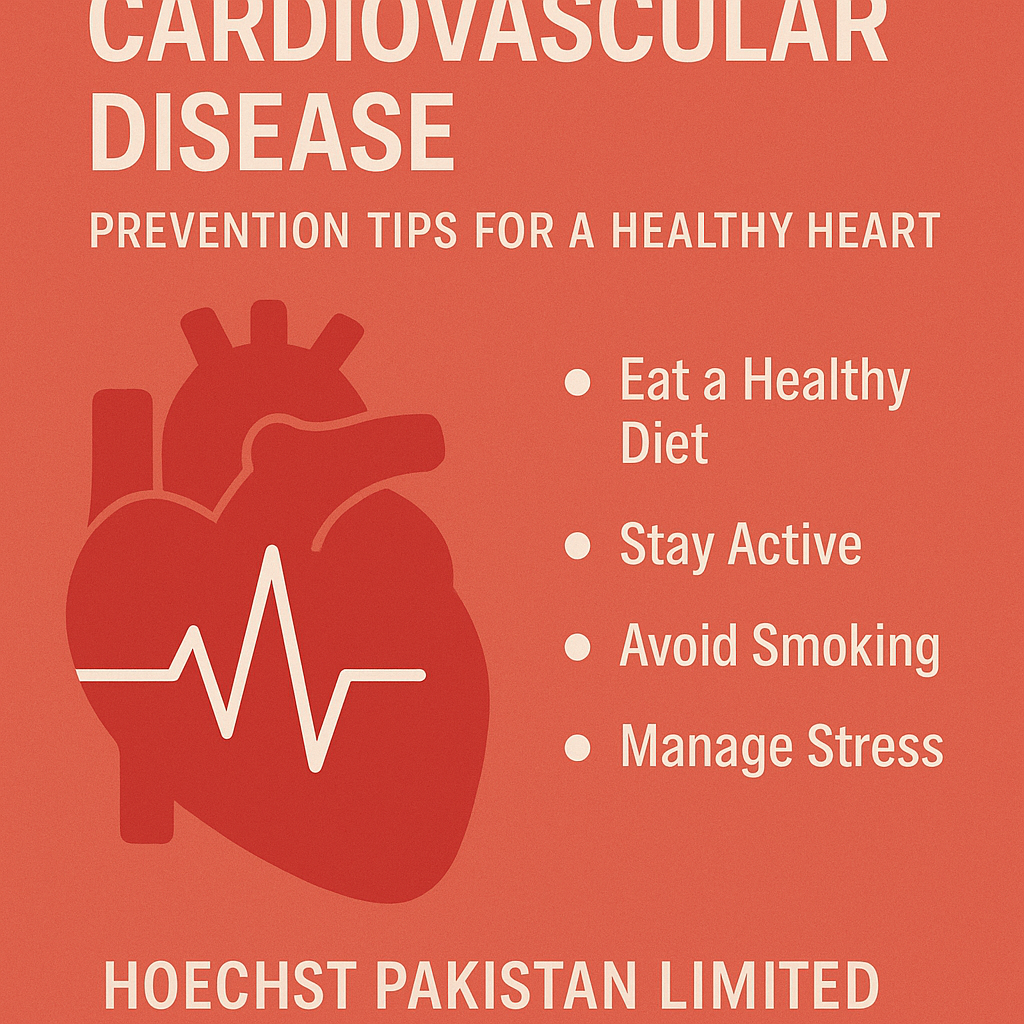
Cardiovascular disease continues to be one of the leading causes of death globally—and Pakistan is no exception. With increasing urbanization, unhealthy dietary habits, sedentary lifestyles, and rising stress levels, more and more people in our country are falling victim to this silent but deadly health threat.
Heart-related illnesses are no longer limited to older adults. Alarmingly, a growing number of young Pakistanis are being diagnosed with early signs of cardiovascular complications. This shift highlights an urgent need for awareness, early detection, and lifestyle changes across all age groups.
Types of Cardiovascular Illnesses That Demand Attention
When people hear the term heart disease, they often think only of heart attacks. However, cardiovascular disease is a broad term encompassing several conditions that affect the heart and blood vessels. In Pakistan, the most common types include:
-
Coronary Artery Disease (CAD): This is caused by the narrowing or blockage of the coronary arteries, often due to a buildup of cholesterol. CAD can lead to heart attacks.
-
Hypertension (High Blood Pressure): Often referred to as the “silent killer,” high blood pressure may show no symptoms but significantly raises the risk of heart failure, stroke, and kidney problems.
-
Stroke: Though not directly a heart disease, stroke is a serious consequence of poor cardiovascular health. It occurs when blood flow to the brain is interrupted.
-
Heart Failure: This condition occurs when the heart can’t pump blood efficiently, leading to fatigue, breathlessness, and fluid retention.
-
Arrhythmias: These are irregular heartbeats that can sometimes be life-threatening if not managed correctly.
Understanding these variations is crucial for timely diagnosis and treatment.
Risk Factors Behind the Rise in Cardiovascular Disease
Several controllable and uncontrollable factors contribute to the prevalence of cardiovascular disease in Pakistan. The main risk factors include:
-
Poor Dietary Habits: A diet high in saturated fats, sugar, and salt can increase cholesterol levels and blood pressure.
-
Lack of Physical Activity: Many people now lead sedentary lives, especially in urban areas, leading to weight gain and poor heart health.
-
Smoking and Tobacco Use: These are directly linked to heart damage, narrowing of arteries, and increased blood pressure.
-
Stress and Mental Health: Chronic stress, anxiety, and depression are increasingly being recognized as contributors to heart disease.
-
Diabetes and Obesity: Both conditions increase the workload on the heart and the risk of cardiovascular complications.
-
Family History: Genetics can also play a role, making regular checkups even more important for those with a family history of heart-related issues.
Raising awareness about these factors can significantly reduce the incidence of cardiovascular disease.
The Role of Prevention in Combating Cardiovascular Disease
Preventing cardiovascular problems is not just the responsibility of healthcare professionals; it starts with individual action. Here are some effective preventive measures:
-
Eat a Balanced Diet: Include more fruits, vegetables, whole grains, and lean proteins in your meals. Avoid excessive salt and sugar.
-
Exercise Regularly: A minimum of 30 minutes of moderate exercise most days of the week can greatly benefit your heart.
-
Quit Smoking: This is one of the most important steps you can take to improve your heart health.
-
Manage Stress: Try relaxation techniques such as prayer, yoga, or deep breathing exercises.
-
Monitor Your Health: Keep an eye on blood pressure, cholesterol, and blood sugar levels, especially if you have a family history of heart issues.
-
Limit Alcohol Intake: Although not widely consumed in Pakistani society, where applicable, reducing alcohol intake can also improve heart health.
Public health initiatives and campaigns can be highly effective in promoting these habits. Organizations like Hoechst Pakistan Limited play a role in educating communities and supporting heart health initiatives across the country.
Recognizing Early Warning Signs of Cardiovascular Trouble
Many people ignore the early symptoms of heart-related issues until it’s too late. Being able to recognize these signs can make all the difference:
-
Chest pain or discomfort
-
Shortness of breath
-
Unexplained fatigue or dizziness
-
Rapid or irregular heartbeat
-
Swelling in legs, ankles, or feet
If you or someone you know experiences these symptoms, seek medical advice promptly. Early detection often leads to more effective treatment and better outcomes.
The Importance of Regular Health Screenings
Routine checkups and diagnostic screenings can be life-saving. In Pakistan, many people do not undergo preventive health screenings due to lack of awareness or limited access. However, basic tests like ECG, blood pressure monitoring, and cholesterol checks are crucial.
Even if you feel healthy, annual checkups can detect silent indicators of cardiovascular disease before they become serious. This is especially true for individuals over the age of 40 or those with risk factors like obesity, diabetes, or a family history of heart disease.
Conclusion: Cardiovascular Disease Demands National Attention
Cardiovascular disease is a growing concern that affects individuals, families, and entire communities in Pakistan. Addressing this health crisis requires a multi-pronged approach: public education, lifestyle modifications, early screening, and access to quality healthcare services.
By adopting healthier habits and recognizing the early signs of trouble, we can significantly reduce the burden of heart-related illnesses. Let’s take collective responsibility and make heart health a national priority—for ourselves and for future generations.